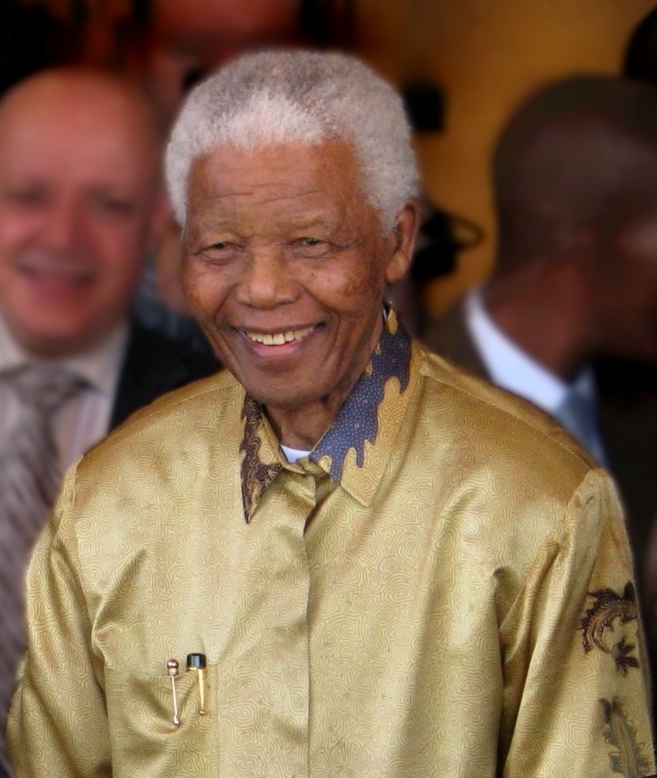by ALAIN GRESH

Governments around the world, who now officially worship Nelson Mandela, once called him a terrorist and did deals with South Africa’s apartheid regime.
Everybody loves Nelson Mandela. The French press has called him “A hero of our times” (1) and declared that “he changed history” (2). Clint Eastwood’s Hollywood film Invictus made him movie-star glamorous. The World Cup united us all in worship of a visionary who rejected violence and led his people to a promised land where blacks, whites and those of mixed race live together in harmony. The prison on Robben Island where Mandela was incarcerated for many years is a must-see for foreign visitors, a reminder of a misty past: the era of the apartheid regime that was condemned by all, and especially by western democracies.
Scholars have tried to trace the historical Jesus Christ from the accounts in the Gospels, and so it should be easier to trace the historical Mandela since we have a “gospel” written by the man himself (3), as well as many eyewitness accounts. And yet the Mandela of legend seems as far from reality as the Christ of the Gospels, if not further, because we find it so shocking to admit that this new messiah was once regarded as a terrorist, an ally of the communists and of the Soviet Union, and a revolutionary.
The African National Congress (ANC), which had a strategic alliance with the South African Communist Party, first resorted to armed conflict in 1960, after protesters were killed in the township of Sharpeville. They were demonstrating against the pass system, which required black South Africans to carry a kind of internal passport. The deaths convinced Mandela, who until then believed the struggle should be pursued by legal means, that the white minority would never give up its power and privileges peacefully. Having tried sabotage, the ANC moved on to terrorism on a limited scale, planting bombs in a few cafés.
Mandela was arrested and imprisoned in 1962. In the late 1980s he rejected a number of offers of freedom in return for a repudiation of violence. He wrote in his memoirs that it was always the oppressor, not the oppressed, who dictated the form that the struggle would take. If the oppressor used violence, the oppressed had no choice but to respond with violence. Only violence, supported by popular mobilisation and by ever more restrictive international sanctions, was able to demonstrate the stupidity of the apartheid system and force the white minority government to change. Having established the principle of “one man, one vote”, Mandela and the ANC showed they could be flexible through their efforts to build a “rainbow nation” and the guarantees they made to the white minority. They even scaled down their plans for social transformation – but that is another story.
The ANC enjoyed material and moral support from the Soviet Union and the socialist camp. Many of its officers were educated and trained in Moscow or Hanoi. The struggle spread through southern Africa, where the South African army was trying to establish hegemony. The intervention of Cuban troops in Angola in 1975 and the victories they won, especially at Cuito Cuanavale in 1988, weakened the government’s military power and highlighted the impasse that it faced. Cuito Cuanavale was, according to Mandela, “a turning point for the liberation of our continent and my people” (4). Mandela did not forget the part Cuba had played and Fidel Castro was a guest of honour at Mandela’s inauguration as president in 1994.
In this clash between the black population and the white minority government, the US, the UK, Israel and France took the wrong side, defending apartheid in the name of the struggle against communism. Chester Crocker, the architect of the US policy of constructive engagement in southern Africa under President Ronald Reagan in the 1980s, wrote: “By its nature and history South Africa is a part of the western experience, and an integral part of the western economic system” (5). The US supported South Africa’s invasion of Angola in 1975. It flouted the arms embargo and worked closely with the South African intelligence services, rejecting all coercive measures against the white regime, and called on the black majority to show “restraint” and wait patiently for change.
Le Monde Diplomatique for more
